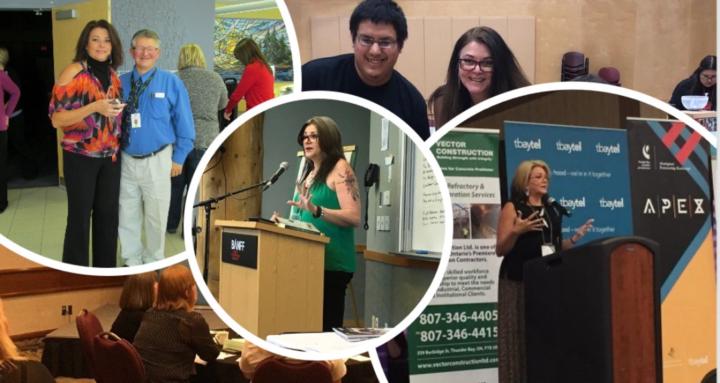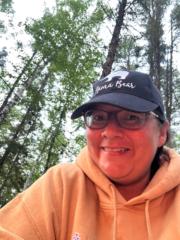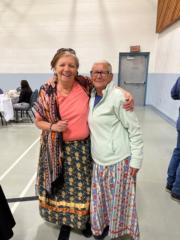Lesson 12 Reflection
I am US-based so some of this may be different where I am, but I have heard most of these words (not "Don't go Indian on me" or "Cheque Day/Treaty Day." I was surprised by a couple of explanations because they are even MORE racist the way I learned them: for me growing up, "Indian giver" implied someone gave you something and then took it back "the way an Indian does." I thought this emerged from a European perception that an Indian would give or sell land or another resource and then say, "no that's not yours permanently." I believe it stemmed from different beliefs about land ownership as well as who has the right to give or sell something (again, this is my US-based perspective because I'm ignorant about Canada and am trying to learn) but many tribes (and I assume bands), had overlapping use of land, so no individual tribe/band could give or sell it. Europeans would "buy" it from one person or tribe/band who didn't represent others. The other one that I heard in an even more racist way is "Circling the wagons" -- which as I heard it is what Natives would do to settlers going out west to attack them. I am not sure if those are US/Canadian differences or maybe the explanation I was given growing up was not typical. I also learned through the video that I had taken for fact a misconception I read online about totem poles. I had read that the bottom position is one of strength because it holds up the others. Thank you for correcting this for me.
0
0
Lesson 6
Imagine two Indigenous people. One is very assimilated into mainstream culture while the other is very traditional. In the community, list off six traits that may be expressed by each person. Consider things like the language they would speak, the holidays they would or wouldn’t observe, how and where they were educated, and how comfy they would be working with you. Perhaps if less mainstream - their first language might be an Indigenous language, they might be more weary or less depending on their experience with healthcare, they maybe observe traditional holidays More assimilated - perhaps they are not as fluent in an Indigenous language, they may be embedded in communities beyond Indigenous ones, perhaps they are not as knowledgeable about traditional practices,
0
0
Lesson 5
Did Lesson 5 surprise you? Can you see how thinking of working in a First Nation community in the same way as taking a job in a foreign country is helpful? It did surprise me, but it made a lot of sense. It made me reflect on the learner position we often take when travelling, and it is another level of humility that makes a lot of sense in this context as well. How locals are regarded as the experts they are and are very much relied on to a point, in some cases, of vulnerability.
0
0
Lesson 4
Prejudice - preconceived thoughts and opinions, often negative Discrimination - actions taken based on prejudice - treating someone different based on their identity/experience/etc - all with real implications Oppression - discrimination at the systemic level - government, workplace, structures, society Internalized oppression - when people who experience oppression internalize the discrimination against them (start to believe it) - a goal of oppressors.
0
0
Lesson 3 Discussion
I was familiar with a lot of what was shared, i feel each time I get to hear about it, it adds a new lens and detail. I was not familiar with the War in the Woods
0
0
1-28 of 28

skool.com/relationship2reconciliation
Sandi Boucher has dedicated her life to Canadian/Indigenous reconciliation but the lessons apply to everyone so welcome!!
Powered by





